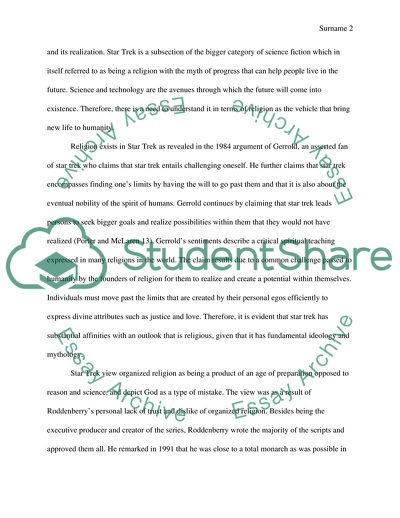Cite this document
(Star Trek and the Death of God Essay Example | Topics and Well Written Essays - 1250 words, n.d.)
Star Trek and the Death of God Essay Example | Topics and Well Written Essays - 1250 words. https://studentshare.org/religion-and-theology/1869066-star-trek-the-death-of-god
Star Trek and the Death of God Essay Example | Topics and Well Written Essays - 1250 words. https://studentshare.org/religion-and-theology/1869066-star-trek-the-death-of-god
(Star Trek and the Death of God Essay Example | Topics and Well Written Essays - 1250 Words)
Star Trek and the Death of God Essay Example | Topics and Well Written Essays - 1250 Words. https://studentshare.org/religion-and-theology/1869066-star-trek-the-death-of-god.
Star Trek and the Death of God Essay Example | Topics and Well Written Essays - 1250 Words. https://studentshare.org/religion-and-theology/1869066-star-trek-the-death-of-god.
“Star Trek and the Death of God Essay Example | Topics and Well Written Essays - 1250 Words”. https://studentshare.org/religion-and-theology/1869066-star-trek-the-death-of-god.


